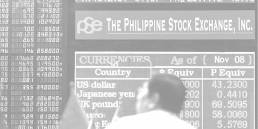As a regulator, how does the PSE protect the rights of the investing public?
The PSE and Securities and Exchange Commission (SEC) have put in place several safeguards that promote transparent, fair, and organized buying and selling of stocks where every investor, big or small alike, are protected from fraud, manipulative trading practices, and erring stockbrokers.
Some of the investor protection initiatives of the PSE are, but are not limited to the following:
1. Self-Regulatory Organization Status
The PSE is a Self-Regulatory Organization
(SRO) as granted by the SEC in June 1998. As such, the PSE acts as the ‘police’ of the stock market and it is the SRO status that empowers it to formulate marketplace rules, and impose penalties or sanctions to market participants who will not comply with these rules.
2. Customer First Policy
The PSE regularly monitors and audits the operations of stockbrokers. It ensures that business and trading practices of stockbrokers conform with the laws stipulated in the Securities Regulation Code of the Philippines, including the Customer First Policy, whereby stockbrokers’ orders must always surrender priority to their clients.
3. Risk Based Capital Adequacy
The Risk Based Capital Adequacy is a PSE regulation which ensures that stockbrokers have enough capital to cover its exposure to risks. It also ensures that stockbrokers are financially sound or liquid enough to promptly settle claims and other obligations to clients.
4. Disclosure Rules
Since timely and reliable company disclosures are essential components of a fair and efficient market, the PSE also sees to it that listed companies promptly disclose factual and truthful information only.
a. 10-Minute Rule
The PSE requires that material information that which may affect a listed company’s share price positively or negatively, are disclosed within 10 minutes after its occurrence.
b. Selective Disclosure Rule
Disclosures must also be done first to the PSE so that it will cascade information to every investor and general public through its communication channels and not to a selected group of individuals only.
c. PSE Electronic Disclosure Generation Technology or PSE EDGE
The PSE Electronic Disclosure Generation Technology or PSE EDGE is a state-of-the-art, fully automated system that facilitates the efficient processing, validation, submission, distribution, and analysis of time-sensitive disclosure reports submitted to the Exchange. The new disclosure system, which was acquired from the Korea Exchange and replaces the PSE Online Disclosure System (ODiSy), is equipped with a variety of features to further standardize the disclosure reporting process of PSE’s listed companies, improve investors’ disclosure searching and viewing experience, and enhance overall issuer transparency in the market.
5. Capital Markets Integrity Corporation (CMIC)
CMIC was established for the primary purpose of reinforcing the confidence of the investing public in capital market institutions and promoting a more active and vibrant market participation. Accordingly, CMIC acts as the independent audit, surveillance and compliance arm of the Exchange.
As a self-regulatory organization, CMIC’s primary mandate is to maintain the integrity of the market and minimize the risk of the investing public by ensuring that the TPs adhere to all pertinent rules, regulations, and code of conduct of CMIC and the Exchange, as well as all related legislative and regulatory requirements.
6. Total Market Surveillance (TMS)
To further enhance investor confidence, the CMIC oversees the market through a world-class and sophisticated surveillance system called TMS, which was developed by the Korea Exchange. TMS is equipped with the critical elements of the surveillance process and provides a robust monitoring and warning mechanism. It is designed to safeguard the integrity of the stock market from fraud, manipulation, and breaches of marketplace rules. The CMIC conducts investigation of unusual price and volume movements to identify and sanction trading participants, issuers or investors who might have committed unfair market practices.
7. Securities Investor Protection Fund (SIPF)
Another tool created for the protection of investors is the Securities Investors Protection Fund, Inc. or SIPF. The SIPF, which is comparable to the Philippine Deposit Insurance Corp. providing insurance for bank deposits, seeks to build and enhance investors’ confidence in the market and is envisioned to protect the investing public from extraordinary losses, other than the ordinary market fluctuations, arising as a result of fraud, failure of business, or judicial insolvency of PSE-accredited stockbrokers.
Protection to investors is automatic upon the opening of an account with a PSE-accredited stockbroker and given by way of compensation for trade-related obligations of stockbrokers to its customers.
These safeguards, along with other investor protection initiatives of the PSE, serve to protect the health of the equities market and the integrity of capital formation process, making investing in the Philippine stock market secure.
The PSE continues to perform its functions and duties under the law in ensuring that the market operates in an orderly, efficient, and transparent manner, and that investors are properly protected.
Reference: Philippine Stock Exchange (Edge & Academy)




